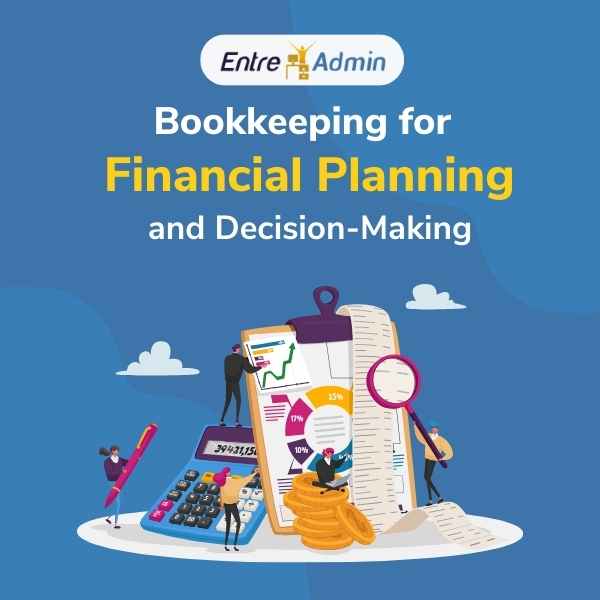Financial planning is often perceived as a daunting task, reserved for financial experts and savvy investors. However, the truth is that sound financial planning is essential for anyone who wants to achieve their financial goals, whether it’s saving for a down payment on a house, funding your retirement, or simply gaining greater control over their finances.

What is bookkeeping in financial management?
Bookkeeping is the process of recording and organizing your financial transactions. It provides a clear picture of your income, expenses, and assets, allowing you to make informed financial decisions. While it may sound like a tedious task, bookkeeping is an essential part of financial planning. Without accurate financial records, it’s difficult to track your progress, identify potential problems, or make smart investment decisions.
Why is bookkeeping important for financial planning?
Bookkeeping is not just about tracking your money; it’s about understanding your financial reality. By keeping accurate records, you can:
1. Create a budget
A budget is a roadmap for your finances, helping you allocate your income towards your goals and expenses. Without accurate bookkeeping data, creating a realistic budget is impossible.
2. Track your progress
Bookkeeping allows you to monitor your spending habits, identify areas where you can cut back, and track your progress toward your financial goals.
3. Identify potential problems
By keeping an eye on your financial trends, you can spot potential problems early on, such as overspending or a decline in income. This proactive approach can help you take corrective action before things get out of hand.
4. Make informed investment decision
With a clear understanding of your financial situation, you can make informed decisions about investing your money. Bookkeeping data can help you assess your risk tolerance and choose investment vehicles that align with your goals.
What are the five important activities in bookkeeping?
The five most important activities in bookkeeping are:
1. Recording income: Track all sources of income, including your salary, wages, investments, and any other income you receive.
2. Recording expenses: Keep track of all your expenses, including rent or mortgage payments, utilities, groceries, transportation, and any other spending.
3. Reconciling bank accounts: Regularly reconcile your bank statements with your bookkeeping records to ensure accuracy.
4. Generating financial reports: Create regular financial reports, such as a balance sheet and income statement, to get a snapshot of your financial health.
5. Staying organized: Keep your financial records organized and easily accessible. This will make it easier to track your progress and prepare for tax season.
Bookkeeping for Financial Planning: Your Gateway to Financial Stability
Bookkeeping may seem like a dry and technical subject, but it’s the foundation of sound financial planning. By understanding your financial reality and making informed decisions about your money, you can achieve your financial goals and enjoy greater financial stability. So, don’t put off bookkeeping any longer. Start today by tracking your income and expenses, and you’ll be well on your way to a brighter financial future.
Hire a bookkeeper if you don’t have the time or expertise to manage your own bookkeeping. EntreAdmin’s virtual bookkeeping experts can assist you in identifying areas of potential cost savings as well as areas where you may be overspending.
EntreAdmin
At EntreAdmin, we understand the unique challenges that come with being a small-to-medium business owner. The constant juggling of your revenue-generating tasks side by side with marketing, administration, and bookkeeping can be overwhelming and take a toll on your mental health. That’s why we’re here to make your life easier.
For further information, contact us today
Phone Number- 281-808-0594
Get Started Here
Your success matters to us. Whether you need help keeping up with admin work, managing your books, or improving your marketing, we’re here to make things easier.
Fill out the form below, and we’ll reach out to schedule your free consultation.
We’d love to learn more about your business and show you how EntreAdmin’s executive assistants can help you save time and energy, stay organized, and focus on what truly moves your business forward.
